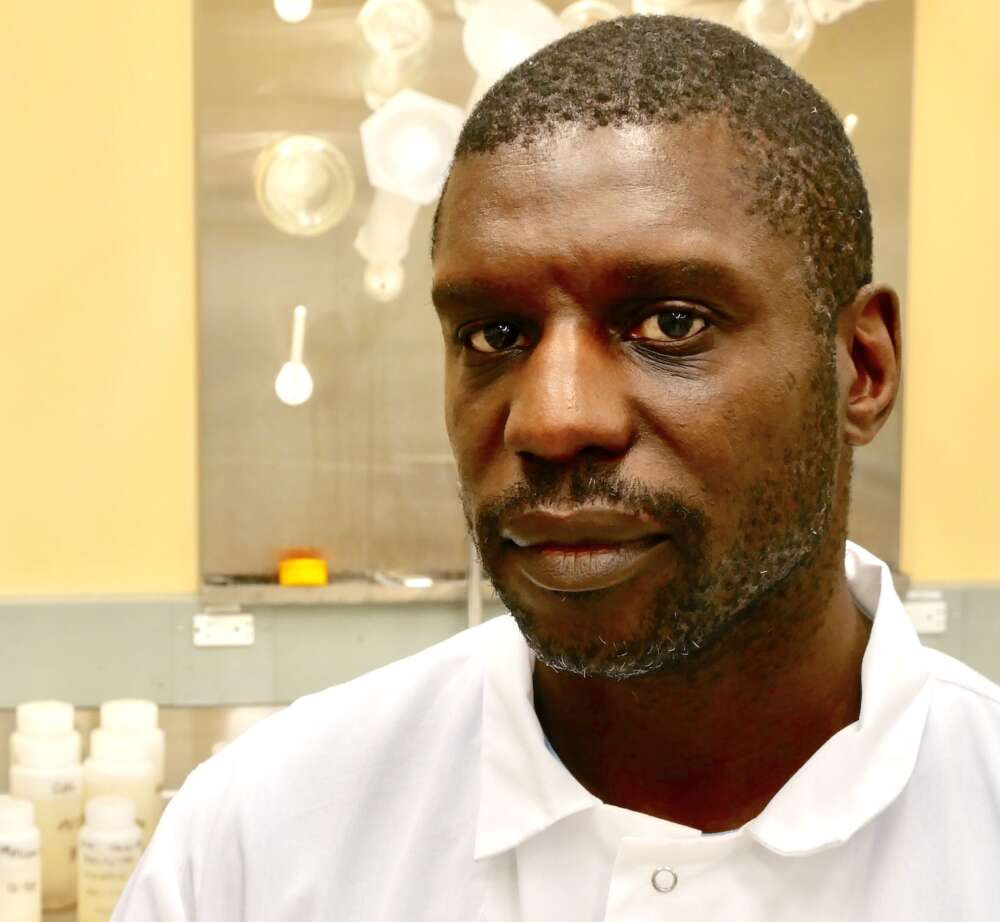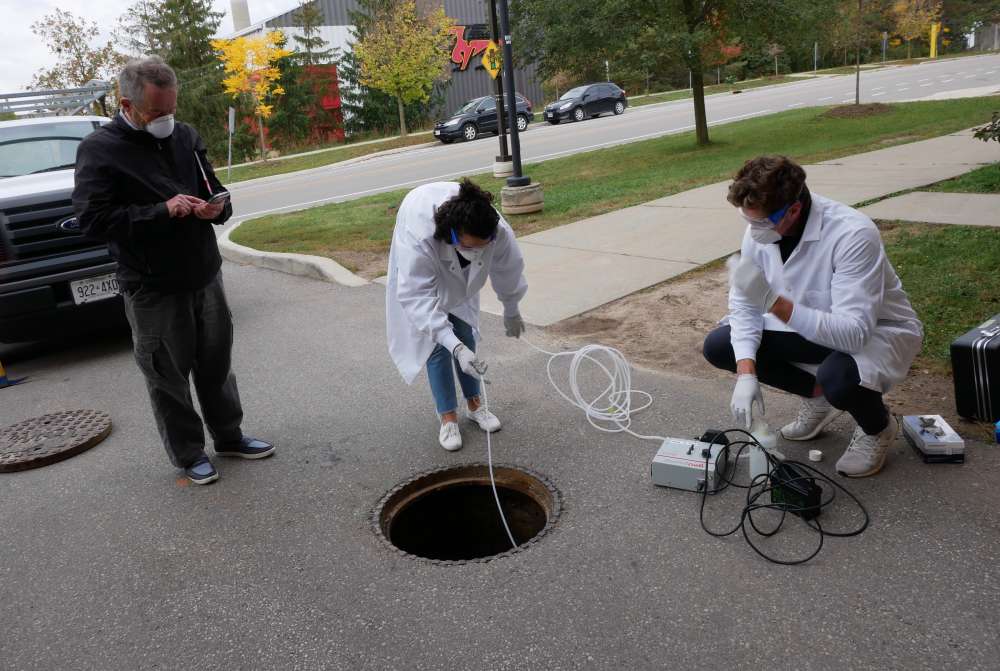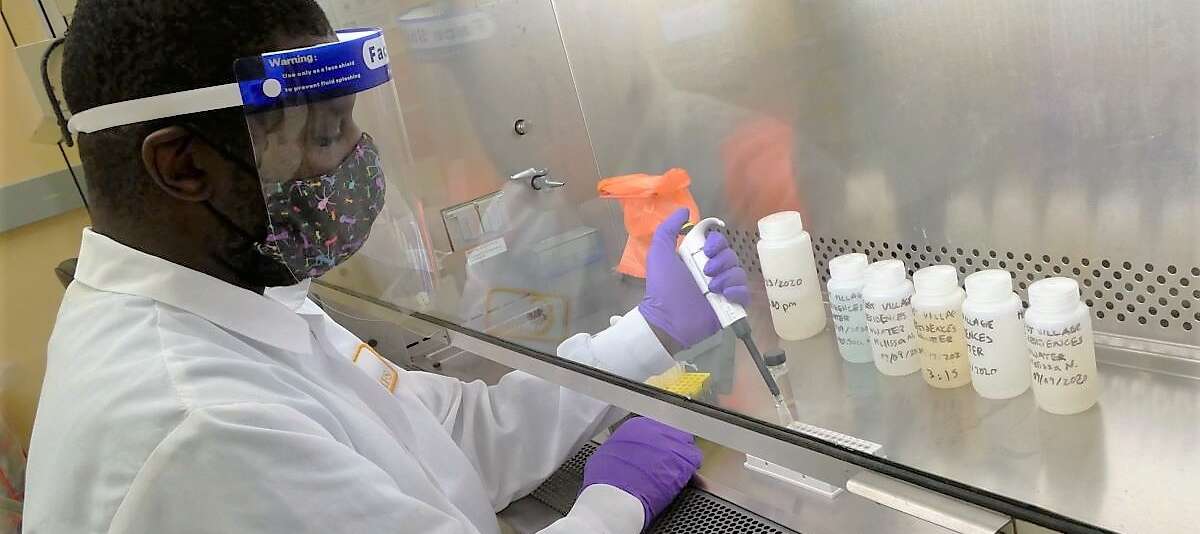
With many provinces imposing restrictions on who can get testing for COVID-19 amid soaring case counts, a University of Guelph researcher says monitoring wastewater for the virus is proving a critically important tool.
Dr. Lawrence Goodridge, a professor in the Ontario Agricultural College, leads wastewater testing projects on the U of G campus as well as in communities across Ontario. He says his team’s work has become one of the few ways to get an accurate picture of the scope of this latest wave of the pandemic.
“With restrictions on PCR testing, we no longer have any reliable way of knowing infection status of a community, which means public health officials are sort of ‘flying blind,’” said Goodridge. “Wastewater testing is now the best indicator of caseloads to provide insight into what’s going on.”
Goodridge, the Leung Family professor in Food Safety and director of U of G’s Canadian Research Institute for Food Safety, has been working since the fall 2020 with U of G colleagues Dr. Ed McBean, a professor in the School of Engineering and Dr. Heather Murphy in the Department of Pathobiology in gathering wastewater samples.
Goodridge and Dr. Marc Habash, a professor in the School of Environmental Sciences, have been conducting laboratory analysis to spot the SARS-CoV-2 virus in water they collect and conduct genetic sequencing on any viral particles they find.
With public health officials agreeing that the Omicron variant is widespread, wastewater testing has become the only reliable indicator of caseloads in a community in the absence of lab testing, providing an important indicator of how the wave is progressing.
U of G one of the first to launch campus wastewater surveillance

“Wastewater testing is a method that has proven over and over again to be effective,” said Goodridge. ”Around the world, in places like Australia and even here in Ontario, it has been shown to spot trends in rising cases counts with high accuracy, and in many cases, has helped to avert outbreaks.”
While monitoring wastewater can’t reveal the specific number of cases in an area, it is an inexpensive way to scan countless samples in a non-invasive way and help estimate the risk level in a community.
Public health officials can use those results in decision-making on such issues as whether to call for more resources during case surges or when to expect a drop-offs in cases. If a new variant emerges, wastewater testing can also help detect it.
“Our team here at U of G team was one of the first in Canada to launch surveillance of campus wastewater and we have become the leaders in Ontario, conducting the most comprehensive on-campus testing in Ontario,” said Goodridge.
The team provided weekly testing at all residences on campus, with results posted on a comprehensive public dashboard that estimates the risk level in each residence. Their work proved an effective tool in estimating the spread of COVID-19 on campus.
“Last semester we were able to keep the campus safe and I am very proud of that work,” said Goodridge.
An effective tool in estimating viral spread
What has also made him proud is the ongoing support from the campus physical resources department, residence life staff and University administration.
“That kind of collaboration is also unique among Ontario campuses,” he said.
This semester, in addition to testing for SARS-CoV-2, Goodridge’s team will test campus wastewater for other viruses including influenza — a Canadian first.
The research team has received significant funding for their work, including through U of G’s COVID-19 Research Development and Catalyst Fund. It was also one of several institutions that received funding from the Ontario government to create a municipal wastewater surveillance network among several communities.
Genome Canada has also funded projects led by Goodridge through Ontario Genomics that includes tracking the COVID-19-causing virus, and another to determine the presence of variants of concern and interest that are circulating in wastewater in Ontario.
“Wastewater testing will continue to be critically important to determine when we reach the peak of this wave of the pandemic,” said Goodridge.
Contact:
Dr. Lawrence Goodridge
goodridl@uoguelph.ca
